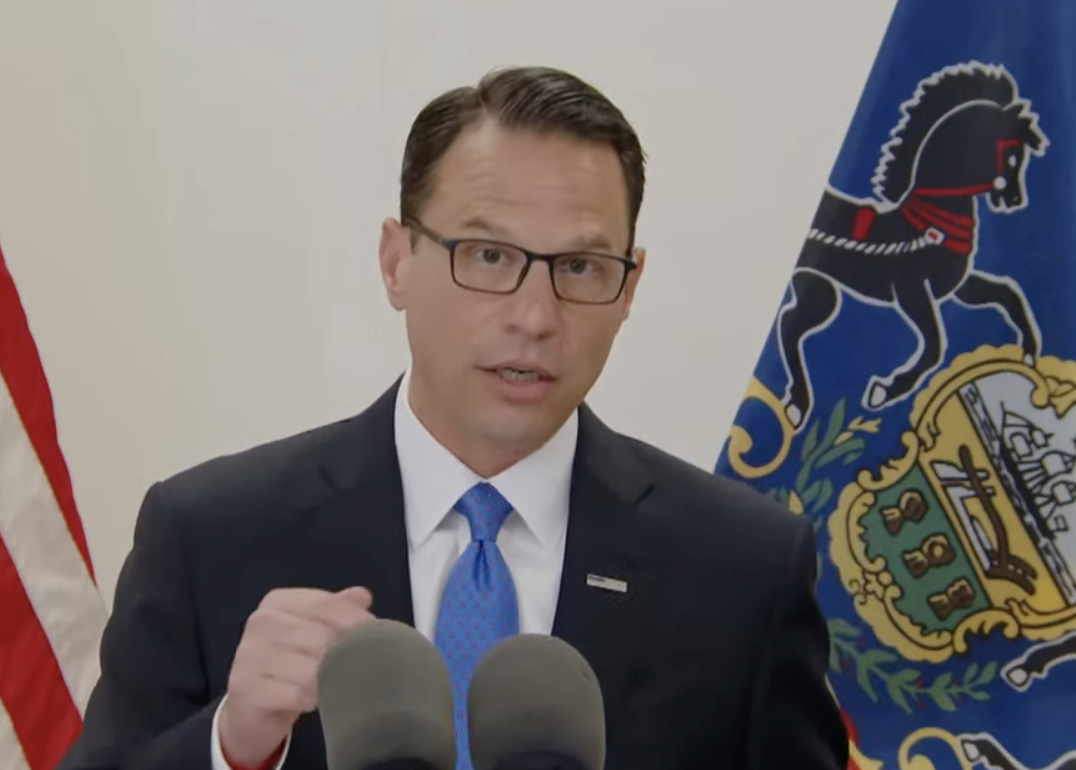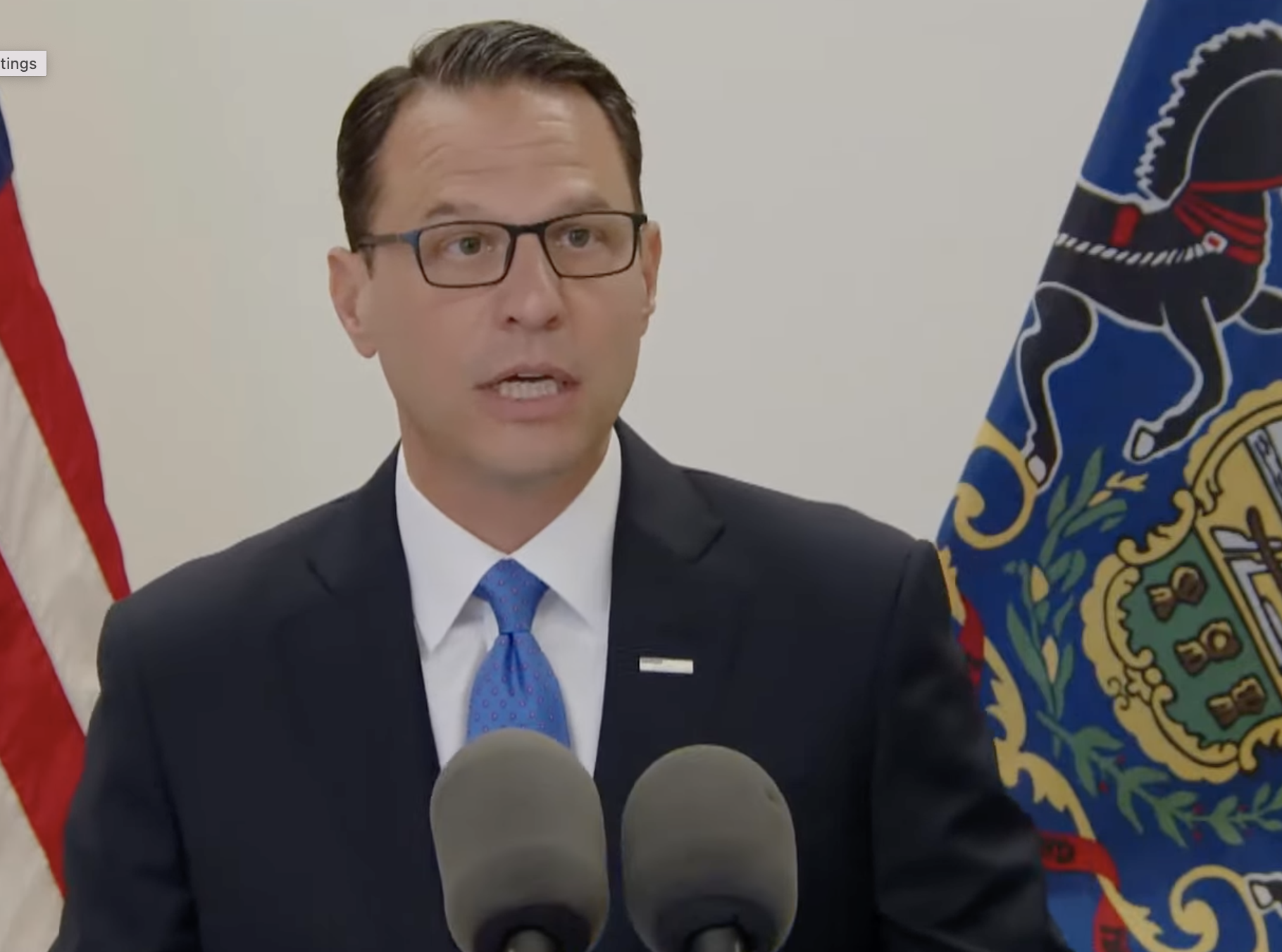CIARROCCHI: Children of a Lesser God

(This column first appeared in Broad + Liberty.)
The governor giveth, the governor taketh away.
On a positive note, during his annual budget address, Governor Shapiro called on the Republican Senate and the Democratic House to work together to pass Lifeline scholarships. They would allow low-income parents whose children attend the worst public schools in Pennsylvania to use scholarships to transfer to a better school. (In 2023, the problem was the House, run by Democrats: the Senate passed Lifeline.)
On a less positive note, the governor’s budget contains no money to pay for Lifeline.
The debate over school choice has become a national battle and, unfortunately, a partisan battle at times. Worse, some politicians and the teachers’ union pit parent against parent, student against student. As if some parents shouldn’t be allowed to have a choice, as if some kids should be forced to go to bad schools — just to prove a point. As if some kids are lesser.
Lifeline is a small, targeted program to help the poorest families, whose children are forced to attend the worst schools. (President Biden might say: “C’mon man.”)
In response to a Court ruling urging the Commonwealth to increase funding for public education — with a focus on students falling behind, attending chronically underperforming schools, the governor’s 2024-2025 proposed budget has the largest-ever annual increase in public education — over $1.5 billion.
(One might note that the governor’s proposal comes immediately after the 2023-2024 budget, which contained the largest increase in public education spending ever, almost $1 billion. That came one year after the 2022-2023 budget which contained the largest increase in public education spending. And so on.)
For those believing that more taxpayer money is needed for public schools: you got it.
Despite the teachers’ union and their special interests’ never-ending public relations campaign to confuse us, we do have several types of public schools in Pennsylvania. Most children attend schools operated by local school districts — what most people think of as “public schools.”
However, there are other public schools in Pennsylvania: charter schools. There are both the traditional school building type (“brick and mortar” schools) and cyber charter schools. While they are created and operated independently, they are funded by taxpayers, authorized to operate and regulated by school districts or the Pennsylvania Department of Education, and their budgets, assessments and board meeting minutes are all available to the public. They are public schools under state laws.
Over 68,000 Pennsylvania students attend a cyber charter school. Nearly 90,000 Pennsylvania children attend a “brick and mortar” charter school. Together, they are larger than the largest school district — Philadelphia School District, plus the Pittsburgh and Reading School Districts combined.
So, when the governor promised over $1.5 billion for public schools, you’d think that charter school parents would be cheering, too. Well, not so fast.
Because while the governor promised over $1.5 billion more for public education, he also proposed cutting cyber education by $262 million.
The governor giveth; the governor taketh away.
The governor’s argument is that cyber schools don’t need as much money for buildings as traditional public schools. At first, that may seem to have some validity. But, the facts and state law shows that, sadly, it’s rhetoric over reality — even putting aside the judge’s ruling urging more spending.
First, contrary to rhetoric and intentional confusion by special interests, cyber schools actually do in fact have buildings. It’s where the administrative officers are, where teachers teach, counselors meet, and students may go for additional help or tech support. Some larger cyber schools have multiple buildings or office space across the state, as Pennsylvania students may attend any cyber school. So, cybers do have buildings and building costs — despite not getting one penny of taxpayer money to get those buildings.
Second, yes by law, cybers are prohibited from using taxpayer money for their buildings. (They typically issue bonds, borrow from banks, or raise the money through donations to buy, build or retrofit buildings.) So, having prohibited cybers from using taxpayer money by law, it seems unfair and disingenuous to cut their education budgets by claiming they don’t need money for buildings.
Third, cybers — as is the case for “brick and mortar” charter schools — only get paid about 70-75 cents on the dollar of the local school district where the school is located to educate their students. The local school district gets to keep 25 to 30 percent of the money spent on education — allegedly to help with “administrative” or “support” costs, etc. So, school districts already get up to 30 percent of a student’s educational costs — for not educating a student — and now, this budget would give a cyber school actually educating the child even less?
(Pennsylvania’s charter school law was passed in 1997. Under state budgets up through 2011, school districts were paid an additional 30 percent of the cost of students who transferred out of a school district and into a charter school of any type. So, for fourteen years, they got 60 percent of the funding of students that they did not educate. Since 2012, they get up to 30 percent of the student’s education costs — again, for children they are not educating.)
“I believe every child of God deserves a shot here in the Commonwealth of Pennsylvania, and one of the best ways we can guarantee their success is…a quality education. I’ve been very clear that I’m open to that concept that you described (school choice)…”
This is what Governor Shapiro told the nation live on television. It’s what he has repeated to the Wall Street Journal and to newspapers and radio and television stations across our state.
The governor attended Jewish Day School — a choice his parents made. (As did my parents, sending me and my brothers to Catholic School in South Philly.)
The governor and his wife send their children to Jewish Day School. (As my wife and I did for our children, by sending them to Catholic Schools in Chester County and Philadelphia.)
Many want to believe that the governor wants “every child of God” to have a shot — to be all they can, to reach their potential. He repeatedly says it. It’s how he has lived his life as a student and as a parent.
It’s time for him to step up and fight for all Pennsylvania children. Bring the parties together. Tell the teachers’ union to stand down — as many of them send their own children to charter, cyber, religious and private schools.
It’s time to stop dividing our children and positioning them as competitors — with one “stealing” money from the other. It’s time to recognize that most parents have “school choice” — they move or they pay for it; but, others don’t have any choice. So, cutting charter funding and failing to pass Lifeline reduces choices, which violates commonsense and compassion.
It’s time for the budget and our laws to match the governor’s soaring rhetoric.
Otherwise, we may have no choice but to assume that cyber students, charter students, and public school students trying to escape the worst schools in Pennsylvania are “children of a lesser god.”



